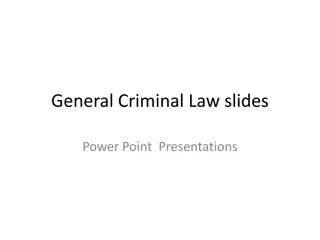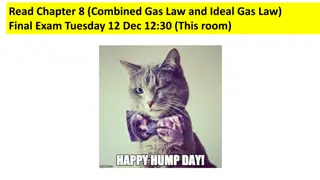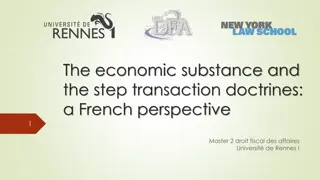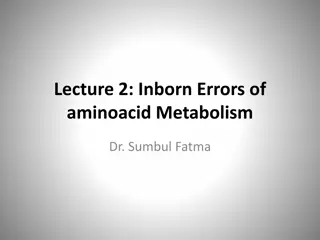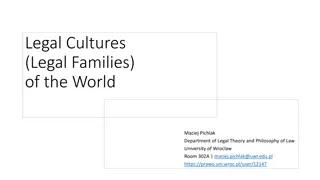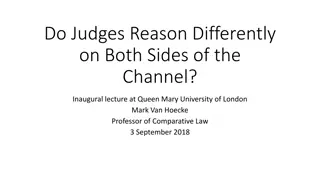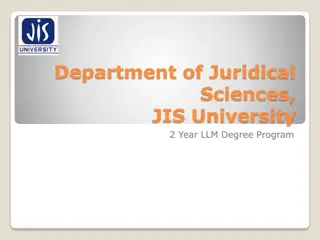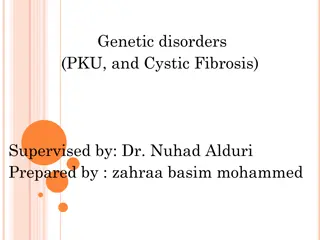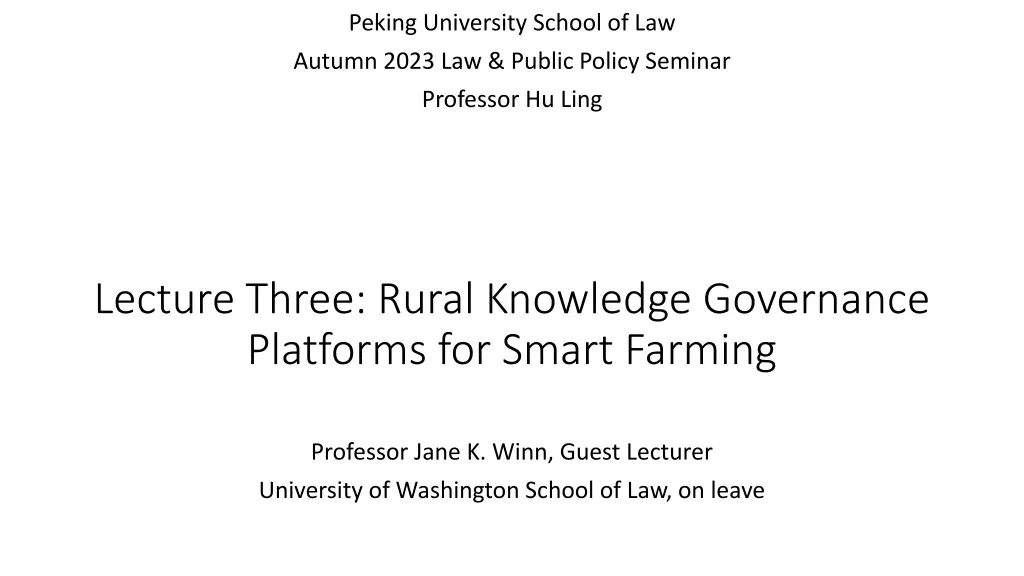
Rural Knowledge Governance Platforms & Smart Farming Seminar
Explore the intersection of knowledge governance, food safety, and sustainable agricultural development in the context of smart farming. Delve into China's innovative approaches to rural digital transformation and land registration. Learn about the role of technology and stakeholder trust in orchestrating effective governance platforms for rural development. Join the discussion on fostering innovation in collective agricultural lands and the global race to create successful digital transformation platforms.
Download Presentation

Please find below an Image/Link to download the presentation.
The content on the website is provided AS IS for your information and personal use only. It may not be sold, licensed, or shared on other websites without obtaining consent from the author. If you encounter any issues during the download, it is possible that the publisher has removed the file from their server.
You are allowed to download the files provided on this website for personal or commercial use, subject to the condition that they are used lawfully. All files are the property of their respective owners.
The content on the website is provided AS IS for your information and personal use only. It may not be sold, licensed, or shared on other websites without obtaining consent from the author.
E N D
Presentation Transcript
Peking University School of Law Autumn 2023 Law & Public Policy Seminar Professor Hu Ling Lecture Three: Rural Knowledge Governance Platforms for Smart Farming Professor Jane K. Winn, Guest Lecturer University of Washington School of Law, on leave
PKU School of Law AU2023 Professor Hu Law & Public Policy Seminar Introduction to a Work-in-Progress Sin boldly. Martin Luther 1521 Lecture One: Who Will Govern the Global Knowledge Platform? If something cannot go on forever, it will stop. Herbert Stein, Economist Lecture Two: Digital Transformation as Havoc in Heaven (FinTech) If China is a Communist country, and Communism cannot compete with liberal market economies, then how can China the world s leader in financial innovation? Lecture Three: Rural Knowledge Governance Platforms for Smart Farming Bi-Directional Data Flows: [ Teach the masses clearly what we have received from them confusedly. ] Lecture Four: Digital Fanshen for the Global South Can China invite those who would benefit from it the most to join in its economic miracle?
Lecture Three: Rural Knowledge Governance Platforms for Smart Farming Introduction: What do knowledge governance, food safety, sustainable agricultural and rural economic development all have in common? What do rural knowledge governance platforms for smart farming and China s new unified land registration system have in common? If agricultural land in China is owned collectively by farmers, how can innovation be fostered in the absence of private property rights? [ICBC empowers agriculture, rural areas and farmers with technology [PLATFORM] to help rural revitalization] Digital transformation of agriculture is a priority in many countries, who will succeed in creating a successful global platform for rural digital transformation? PRC combines law reforms and institutional support with market solutions US combines law reforms with market solutions EU combines law reforms and institutional support Is the Chinese Communist Party smarter than that?
Rural Knowledge Governance Platform Orchestration Requires Trust If Stakeholder Side One = Peasants, who is Side Two? Stakeholder Side Two Platform Owner & Network Services
Rural Knowledge Governance Platforms for Smart Farming 03A ICBC Promotes Rural Development 2021 CN EN 03B ICBC Data Encyclopedia 2022 03C Property Tax Reforms in China Are Now Inevitable 2023 03D China Digital Food Supply Chain 2021 03E China loT Tomatoes 2019 03FWalmart Puts Pricey Blockchain Food Tracking Platform on Ice 2022 03G Alibaba Hema Future Food Shopping China Traceability.pd/ 03H China Digital Villages Strategy ICBC 2023 03I Four Parts China Rural Innovation System 2021 03J Implementing Food Traceability in China Market Regulation 201S 03K Agriculture Law in China Overview 2022 excerpt 03L Distributed System Agriculture China 2023 excerpt 03M Smart Agriculture loTIEEE2021 excerpt 03N smart farming IOT sustainable agriculture review 2022 excerpt 03O Food Traceability Systems in China 2017 excerpt 03P EU China Food Traceability Overview 2020 03Q FDAs Food Traceability Rule Takes Effect 2026 03R Restaurants Need to Know FDA Food Traceability Rule 2026 03S Proquest Search Food Traceability Rule no results 03T UN Food Systems Transformative Partnership Platform 2021 03U Gartner Nexus of Forces 2016 summary 03V What is Plan-Do-Check-Act PDCA Cycle 03W Book Summary Meadows Thinking in Systems 03X Creative Power of Computational Thinking 2019 03V Salamon New Governance Tools Ch1 2002 excerpt 03Z Timmermans Epstein World of Standards+2010
Paradigm Shifts Generate Paradoxes as the Old System Fades Away But the New System Is Not Yet Complete (Social Taboos about Seeing Contradictions Weaken) Paradox of New Governance Paradox of Anteus Paradox of First Among Equals/Primus Inter Pares
Paradox of New Governance The tools of public action that emerge as the best choice after policy analysis will inevitably turn out to the be most difficult to implement successfully. Lester Salamon, The Tools of Government: A Guide to the New Governance (2002) New governance invites public private collaboration instead of imposing public mandates on private actors When it works, it is the most efficient way to achieve the public good But it is also the hardest form of government to operate successfully Goal: achieve both efficiency (global competitiveness) and fairness simultaneously. In liberal capitalist societies this is called: Better regulation Smart regulation Reinventing government What is it called in China?
Paradox of Anteus Hitting the ground gave Anteus new strength, it didn t hurt him at all Antean Paradox: what would kill a normal person actually *HELPS* you instead Stronger than what doesn t kill you makes you stronger Separating the state from the market is one of the most important generative sparks of modernity If a nation-state tries to merge government (justice) and market (efficiency) functions, then neither will work properly If a corporation tires to merge market (efficiency) with social responsibility (justice) then neither will work properly China does not follow the Western model, yet has achieved the most rapid economic growth in 5,000 years of human history What hurts the Western model may not hurt China, it might even make China stronger
Paradox of First Among Equals Deng Xiaoping died age 92 after ruling China from 1978-1997 Paramount Leader
Paradox of First Among Equals Julius Caesar was assassinated for declaring himself emperor so his successor Caesar Augustus never took the title emperor, he was simply re- elected magistrate every year for the rest of his life primus inter pares Another generative spark of modernity is the claim of the nation state to have absolute, universal, centralized power through law There is no absolute, universal centralized legal power in a successful, economically developed polycentric/pluralist social order: leaders must orchestrate the actions of others Most authoritarian regimes rely on command and control, and are impoverished
Which Policy Instrument? Direct government ownership/provision of goods and services Social welfare regulation (environment, health safety) Economic regulation (competition/antitrust) Private law (property, contract, tort) + courts Licensing Insurance Government guarantees Public subsidy from tax revenue Tax credits Fees, fines Mandatory technical standards Voluntary technical standards [ Standards build markets ] Industry self regulatory scheme Application programming interfaces
What is regulation? OECD 1997 Report on Regulatory Reform: No generally accepted definition http://www.oecd.org/dataoecd/17/25/2391768.pdf Instruments used by governments to set requirements on people and organizations laws, formal and informal orders and subordinate rules issued by all levels of government, and rules issued by non-governmental or self-regulatory bodies to whom governments have delegated regulatory powers Economic regulations intervene directly in market decisions such as pricing, competition, market entry, or exit. Reform aims to increase economic efficiency by reducing barriers to competition and innovation, often through deregulation and use of efficiency-promoting regulation, and by improving regulatory frameworks for market functioning and prudential oversight. Social regulations protect public interests such as health, safety, the environment, and social cohesion. The economic effects of social regulations may be secondary concerns or even unexpected, but can be substantial. Reform aims to verify that regulation is needed, and to design regulatory and other instruments, such as market incentives and goal-based approaches, that are more flexible, simpler, and more effective at lower cost. Administrative regulations are paperwork and administrative formalities -- so-called "red tape" -- through which governments collect information and intervene in individual economic decisions.
Social Regulation Enforcement Pyramid = Ostrom Principle of Governance Design Graduated Sanctions for Administrative Agency Regulators
Limits of Legal Policy Instruments Bateson Level 2 Learning vs. Level 3 Learning You can force someone to marry someone else, you cannot force them to fall in love with each other You can force someone to produce something, you cannot force someone to be creative You can force someone to obey you, you cannot force someone to trust you You cannot impose a culture of innovation
Relationship of Modern Law to Pluralism/Polycentrism
Law vs. Social Norms Social Custom versus Customary Law Clear external sanctions apply to failure to comply with law but not social norms Social Norms Law
Standards as Law Standards Measurement Product, Process Interoperability Behavior/System Law Treaties Constitution Statutes Regulations Cases ICT Standards Standards as Law, ICT Platforms
New Science of Decision Making = New Epistemic Culture of Governance Herbert A. Simon, The Sciences of the Artificial (1969) Nobel Prize in Economics 1978 Science is about nature while engineering is about design. But not just engineers are designers: everyone who devises courses of action aimed at changing existing situations into preferred ones is a designer. Design, so construed, is the core of all professional training.
New Epistemic Culture of Governance: It s Not Technology, It s a Feedback Loop Product Develop After Sales Support Dispute Resolution Marketing Sales IPR Lawyer IPR Lawyer Commercial Lawyer Commercial Lawyer Litigator
Walter Shewhart Statistical Process Control Chart: collect data from production process and analyze
From Bureaucratic Check-Box Thinking (Knowledge is Power) to Evidence-Based Problem Solving (Working is Learning, Learning is Working) Linear, Abstract Bureaucratic Check-Box Thinking Destroys Information, Restricts Information Analysis, Blocks Discussion of Outcomes by Hiding Goals Evidence-Based Problem Solving Increases Information, Promotes Information Analysis, Opens Discussion of Outcomes by Sharing Goals China s Mobile Payment System China s Rural Innovation System Top Down TO-BE Happy State Bottom Up
Statistical Process Control = New Epistemic Culture of Governance The first step in improving quality (value creation) is bringing a system under control i.e., setting up a feedback loop SPC/continuous improvement was created in 1920s, spread slowly in 1930s Problems with war production for World War II led to widespread adoption of SPC/continuous improvement in defense industries After WWII, other US producers rejected SPC, but it took root in Japan Never let a good crisis go to waste Focus on process, not products, to identify VARIATION in repeatable processes Common causes are management problems Specific causes are individual problems First step is defining the goal/value .
Clayton Christensens Market-Creating Innovation If only the skilled and the rich have access to a product or a service today but technology innovation makes it possible to make it faster, better, cheaper, then
The Value Proposition is *NOT* *NOT* Access to a Lawyer Access to a Lawyer
What if Chinese peasants can adopt the new epistemic culture of governance more quickly and effectively than lawyers in the West?
The Next Great Global Land Rush Which Great Power will be the first to project its regulatory culture into the next generation of global markets? United States Kasparov s Law: The Best Evidence-Based Problem Solving Embedded in Human-Computer Interaction Wins European Union China India
It Is a Knowledge Revolution We Are Constructing Everyone is an intellectual, but not all people have the social function of intellectuals. Antonio Gramsci, The Prison Notebooks 1935 The single most important factor influencing learning is what the learner already knows. Ascertain this and teach them accordingly. David Ausubel, Educational Psychology 1968 Everyone has the capacity, has the ability to articulate a vision of reality and to fight for the realization of their values and goals in society. Manning Marable, Talking about a Revolution 1998
Teach the masses clearly what we have received from them confusedly. Paulo Friere quoting Andre Malraux quoting Mao Tse-Tung declared There are no successful enterprises, only enterprises of the times. ( , ) Zhang Ruimin, Haier CEO The New Legal Order of Uncertainty has begun Van Gend en Loos EU Court 1962 The Community constitutes a new legal order of international law Costa v. Enel EU Court 1964 Treaty created its own legal system that is integrated into member state law McCulloch v. Maryland US Supreme Court 1819 We must never forget that it is a constitution we are expounding Chairman Mao, On Practice (1937) Practice, Know, Practice Again, Know Again







